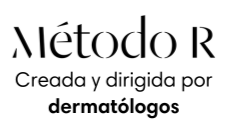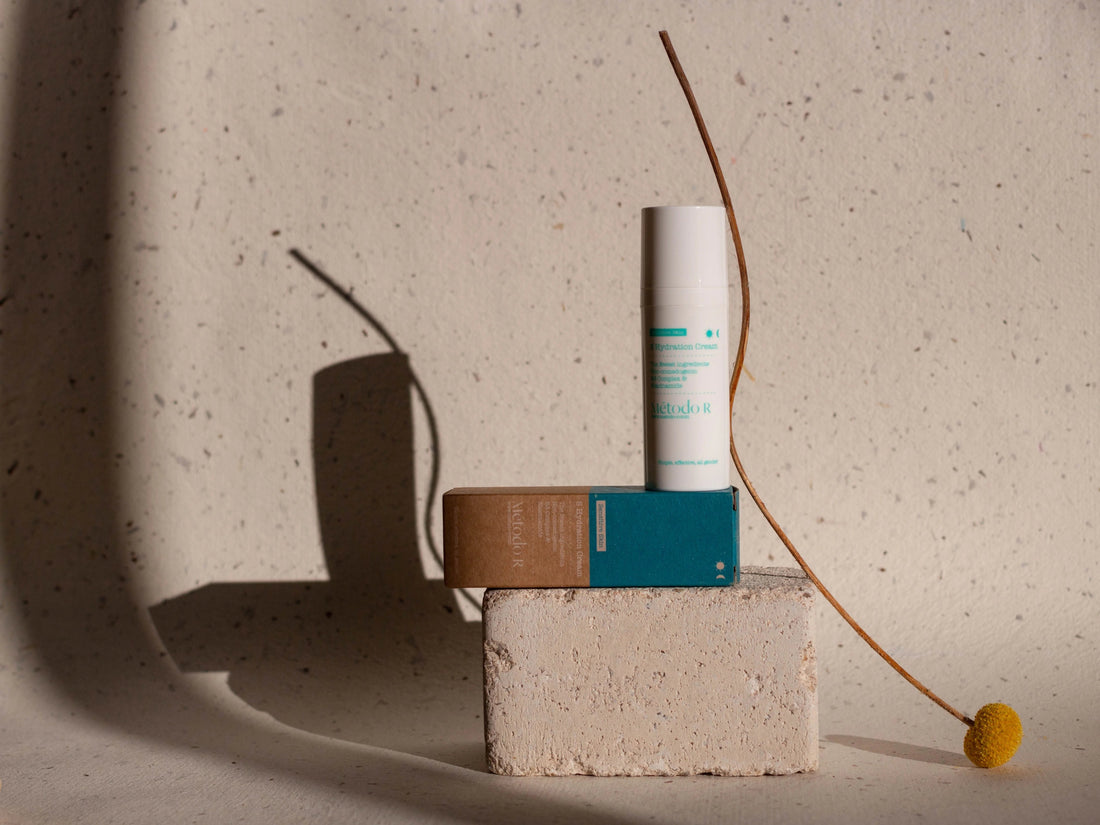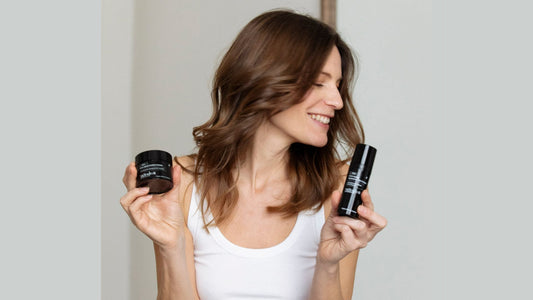Skin health is an important topic for many people, and understanding the products we use is essential to maintaining healthy skin. In this article, we will address the following questions: What does it mean for a product to be non-comedogenic? What products are non-comedogenic? How is it different from oil-free? We will also provide tips for caring for oily or combination skin.
What does it mean for a product to be Non-Comedogenic?
The "non-comedogenic" label on a skin care product means that it has been formulated with less oil, specifically so as not to clog pores. Non-comedogenic products are designed to minimize the likelihood of pores becoming blocked and comedones, such as whiteheads and blackheads, developing. For a cosmetic to carry the “non-comedogenic” claim, it must pass a dermatological test that certifies that the cosmetic fulfills what it promises. It's a guarantee. These products are suitable for people who are prone to acne or have skin prone to breakouts.
What products are Non-Comedogenic?
Non-comedogenic products cover a wide range of skin care options, from cleansers and moisturizers to makeup foundations and sunscreens. Any of these cosmetics that are not oil-free can make acne worse.
You can find non-comedogenic moisturizers, serums, lotions, and other products that help keep skin balanced without clogging pores. Some common ingredients in non-comedogenic products include panthenol, niacinamide, and hyaluronic acid. These active ingredients help provide water to the skin without adding fat.
How is it different from Oil-Free?
The terms "noncomedogenic" and "oil-free" are often confused, but they have different meanings:
- Non-Comedogenic : As we mentioned above, non-comedogenic products are designed not to clog pores, meaning they may contain light oils or ingredients that do not contribute to pore clogging. They are safe for people with breakout-prone skin, even if they contain natural oils.
- Oil-Free: Oil-free products are formulated without oils in their composition. These products are ideal for people with oily skin or skin prone to acne breakouts. However, it is important to note that an oil-free product is not necessarily non-comedogenic, as it may contain other pore-clogging ingredients.
Care for Oily or Combination Skin
To care for oily or combination skin, it is important to follow an appropriate routine:
- Cleansing: Use a gentle cleanser twice a day to remove excess oil and impurities. Always choose a gentle cleanser that respects the skin barrier.
- Hydration: Even if you have oily skin, you should not skip hydration. Opt for a non-comedogenic moisturizer that balances the skin's moisture.
- Exfoliation: Incorporate gentle exfoliants into your routine to help unclog pores and reduce breakouts.
- Sun Protection: Use a non-comedogenic sunscreen to protect your skin from sun damage and be sure to remove it completely at night. Oil cleansers are quite effective at removing it. And although it may seem paradoxical, if they are well formulated and do not leave any residue, they can be used even if your skin is oily. Grease melts into grease and cleans skin better than a water-based cleanser.
- Makeup: If you wear makeup, choose non-comedogenic products and remove it completely before going to bed.
WATER x FAT
It is important to moisturize your skin even if you have oily skin that is prone to acne. The skin barrier contains fat and water in its composition and needs them. Just because your skin produces more oil than necessary doesn't mean you don't need to give it water. And unfortunately the water you drink doesn't go to your skin. The way to hydrate the skin is with the use of moisturizing creams.
Proper hydration helps balance oil production, prevents skin from becoming oilier to compensate for dryness, and maintains a healthy skin barrier.
Well-hydrated skin is less prone to breakouts and can help control acne. Use a non-comedogenic moisturizer to get these benefits without clogging your pores.
In short, choosing non-comedogenic products is essential to avoid clogging pores and maintain healthy skin. Additionally, it is important to understand the difference between "non-comedogenic" and "oil-free" to select products suitable for your skin type. To maintain healthy oily or combination skin, follow a skin care routine that includes cleansing, moisturizing, exfoliating, and if you are going to be in the sun for more than 15 minutes, always use sunscreen. Balanced and radiant skin is within your reach with the right care!




